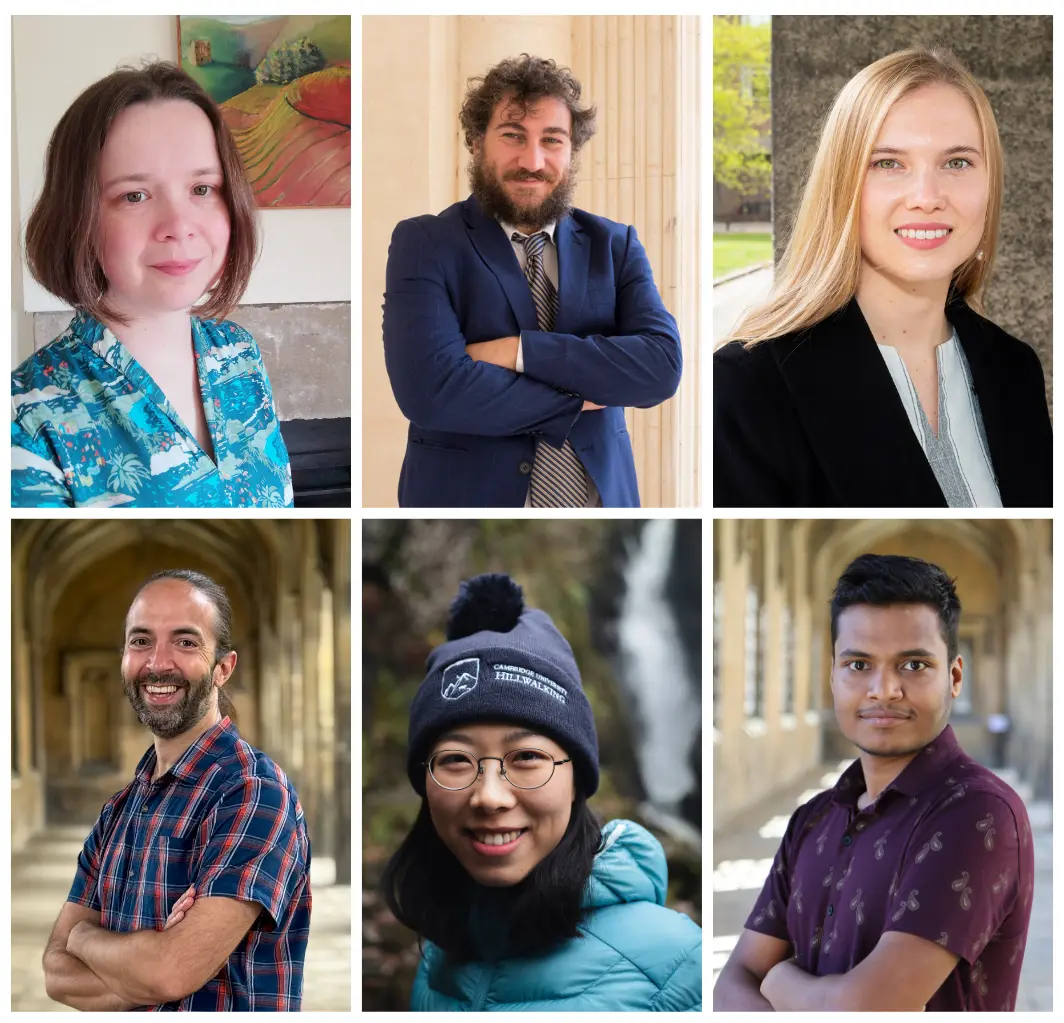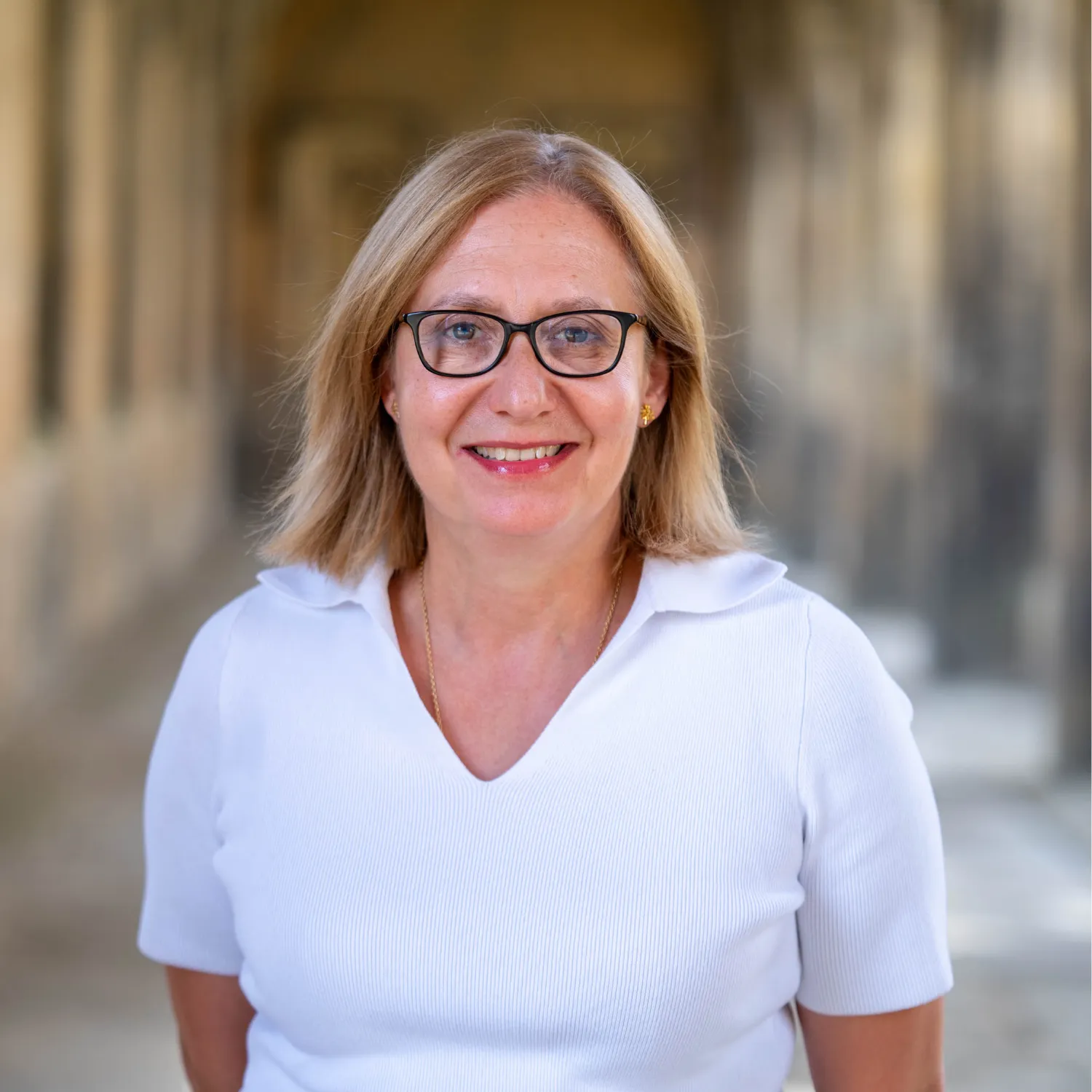
Researchers developing new technologies and studying how AI can be used to improve access to justice are among six new Fellows to be welcomed to St John’s College.
Dr Luca Peretti joins as a College Lecturer in Italian while Dr Jonathan Padley is the new Tutor for Undergraduate Admissions.
Four early-career academics have joined St John’s as Research Fellows: Pratyush Ghosh (Physics and Astrophysics), Dr Dongxun Lyu (Chemistry), Dr Holli Sargeant (Law) and Dr Lucy Sixsmith (English).
A new College President has also taken office at the start of the 2025-2026 academic year. Professor Albertina Albors-Llorens, a Fellow of St John’s since 2014, takes over as President from Professor Steve Edgley, who has completed six years in the role as head of the College Fellowship.
Professor Albors-Llorens is a College Lecturer and Director of Studies in Law, Professor of European Union Law and Co-director of the Centre for European Legal Studies.
Dr Peretti teaches a variety of undergraduate and postgraduate courses in Italian literature, cinema and cultural history, particularly in their transnational and postcolonial dimensions. He has co-edited volumes on terrorism and cinema, Pier Pasolini Pasolini, Italian cinema and Algeria, and the former Portuguese colonies.
Dr Padley is an Affiliated Lecturer at the Faculty of Education and Honorary Member of the Faculty of English alongside his roles as Tutor for Undergraduate Admissions and College Tutor. He teaches and examines undergraduates and postgraduates in English children’s literature. Before joining St John’s, he was Lead Admissions Tutor at Churchill College, Cambridge.
Mr Ghosh, who pursued his PhD at St John’s and the University’s Cavendish Laboratory, is leading independent research into how light interacts with matter on extremely fast timescales. He studies advanced materials that illuminate phone screens, absorb sunlight in solar cells, or emit light for live cell imaging. His work also explores how light can be precisely manipulated to accelerate or slow down chemical reactions, opening pathways to new technologies in physics, energy, and sustainable chemistry.

Dr Lyu’s research centres on understanding energy storage mechanisms in advanced materials using nuclear magnetic resonance (NMR) spectroscopy. This uses the magnetic properties of atomic nuclei to analyse molecular structure. She is particularly interested in processes that are key to improving energy storage technologies and her goal is to guide the molecular design of next-generation soft conducting materials.
Dr Sargeant was a solicitor in Australia before studying for her PhD in Law at the University of Cambridge. Her research explores the critical intersection of law and artificial intelligence, seeking to build robust frameworks for responsible AI governance. She is principally concerned with how our laws should adapt to ensure AI is designed and deployed ethically, and how AI can itself be leveraged to improve legal research and access to justice.
Dr Sixsmith teaches practical criticism and critical practice, lyric, and the history and literature of the 19th century to undergraduates. She is interested in what we do with books, and what we do when we read, particularly in relation to the 19th century, when industrialisation and technological change made books and print much cheaper and more ubiquitous. She is currently writing a book on the biographies of 19th-century bibles.
Find out about all the Fellows in our directory